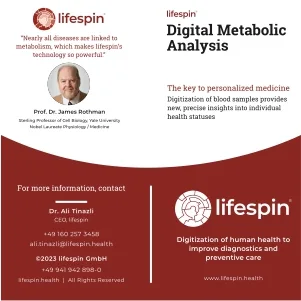Men’s health impacts the entire family as they play multiple roles of son, father, husband, brothers & caretakers. By prioritizing their health, men can maintain strong relationships & fulfill their responsibilities & contribute more fully to family life.
With advances in science & technology, we have a better understanding of diseases & can diagnose & treat many diseases. However, with our fast-paced lives, our daily routine & food habits have also led to an increase in diseases unheard of earlier. We are not able to give ample time to maintain a healthy lifestyle.
Men’s health has always taken a backseat when discussions are going on & has led to serious mental, medical & social problems in day-to-day life. Usually, due to social stigmata & family structure, men are reluctant to address their concerns, sometimes even with their partner & delay or avoid proper consultation with qualified healthcare providers.
Men’s health impacts the entire family as they play multiple roles of son, father, husband, brothers & caretakers.
Also, with easy access to online information, a lot of unwarranted concerns, discussions, self-testing & treatments are coming into practice, leading to psychological & economic burdens. I want to mention today some of the common health issues affecting males of all ages & their related misconceptions. At PRIME HEALTH, we are raising awareness about common health problems and increase the understanding of common health-related concerns.
Apart from common health problems, particular challenges are specific to men requiring special attention. This is because either they are unique to the male sex or associated with fear or shame in discussing with friends or family. Common such conditions are infection of the urinary tract (including prostate infection), prostate enlargement, prostate cancers, male andropause, infertility & sexual problems. Through discussion, we try to increase awareness & bring people out to discuss the problems. This will lead to early detection, prevention strategies, and tailored treatments for these conditions, ultimately saving lives and improving quality of life, as well as avoiding unnecessary fears & treatments.
INFECTIONS OF THE URINARY TRACT
(including infection of the prostate) are common in men of all ages for different reasons in different age groups. Younger men tend to get urinary infections due to active lifestyles with unhealthy hygiene & unprotected intercourse. Older men tend to get infections as an outcome of prostate enlargement, leading to incomplete bladder emptying. Most of the time, infection may not be associated with fever, though it is not always true. Usually, patients experience pain or burning in urine with frequent urination & sometimes blood in urine or semen.
Proper hydration & good hygiene practices are the key to preventing men’s urinary infections. If infection is encountered, they need to be adequately treated by a qualified doctor, which can be done without hospitalization. Timely treatment avoids serious consequences or the need for hospitalization.
STONES ARE ANOTHER COMMON PROBLEM IN MEN
especially in the hot climate of this country. Additionally, a busy lifestyle with a lack of hydration & unhealthy food increases the chances of stone problems. Not all stones require surgery or even treatment & can be managed by regular check-ups to see for potential troubles. Also, a vital aspect is that no pain does not mean any stone. A person who has had a stone earlier will have a higher chance of having a stone again, irrespective of the treatment done or no treatment done; so, regular check-ups with simple tests will ensure that there are either no new stones or the stones if present are not a potential risk to kidney or health of the patient.
Plenty of hydration and healthy food are the keys to avoiding stones but are not the absolute answer as stones have multiple contributing factors in formation; diet is one of them.
PROSTATE ENLARGEMENT IS A UNIVERSAL PROBLEM OF ALL AGING MEN.
It is an age-related change in the body that is bound to happen in all men. However, all prostate enlargements do not need surgery or may not even need treatment with medications. Men usually experience problems in passing urine – frequent urination, urgency, poor flow, need to push to empty bladder & incomplete emptying of bladder. Many times, prostate enlargement may not be noticed despite significant problems.
Effective medications are available for managing prostate with no long-term consequences. An important fact is that prostate is an age-related body change, so it will persist & can be controlled with medications but not cured (since it is not a disease).
ANOTHER SIMILAR PROBLEM IS URINATION TROUBLES
Which include difficulty in passing urine, frequent urination & incontinence (urine leakage). Though the prostate may be the primary reason for these problems, diabetes, aging & other illnesses also contribute to the same. Interestingly, most men do not notice this, assuming it is a part of normal aging. Most of the time, these problems do not need surgery or may not need medications as well.
Control of other medical conditions & minor changes in lifestyle & diet/fluids can bring urination normal. The patients lead a normal lifestyle with no embarrassment of needing to follow toilets or wear diapers for urine leakage.
CANCER IS A DISEASE THAT WILL AFFECT ALL ASPECTS OF A PATIENT’S LIFE – WORK, SOCIAL, FAMILY RELATED & FINANCIAL.
Of mention is prostate cancer – which is unique to males only. Prostate cancer is not a complication or progression of age-related prostate enlargement. They are entirely different problems, with the only common thing being both happen in the prostate & may lead to similar symptoms. Certain ethnic groups, like men from Africa, are at increased risk of developing prostate cancer. People with a history of direct relatives with prostate cancer are also at increased risk. PSA is an easy blood test to screen prostate cancer in people with increased risks.
The American Cancer Society recommends men with an average risk of prostate cancer should begin screening at age 50. However, men with a higher risk should begin earlier. In men with a family history, check-ups should start 10 years before the age at which the relative was diagnosed with cancer. Early detection with simple tests catches the problem early with good surgery & radiotherapy outcomes. The key to avoiding prostate cancer is awareness & early evaluation or screening to detect it at an early stage.
APART FROM THESE UNIQUE PROBLEMS, MULTIPLE GENERAL PROBLEMS CAN AFFECT MEN’S HEALTH ACROSS ALL AGES.
Good health is not just avoiding or early detection of illnesses but also physical fitness, proper nutrition, mental well-being, and stress management. Men’s health impacts the entire family as they play multiple roles of son, father, husband, brothers & caretakers. By prioritizing their health, men can maintain strong relationships & fulfill their responsibilities & contribute more fully to family life. Regular exercise, balanced diets, and self-care practices are essential to long-term health & improved quality of life. By discussing men’s health, we can encourage positive behavior changes to bring the same.
Source: The Health Blog, Prime Medical Center Link: https://www.primehealth.ae/prime-medical-center

Dr. Vipul Agarwal
Consultant Urologist
Prime Medical Center












